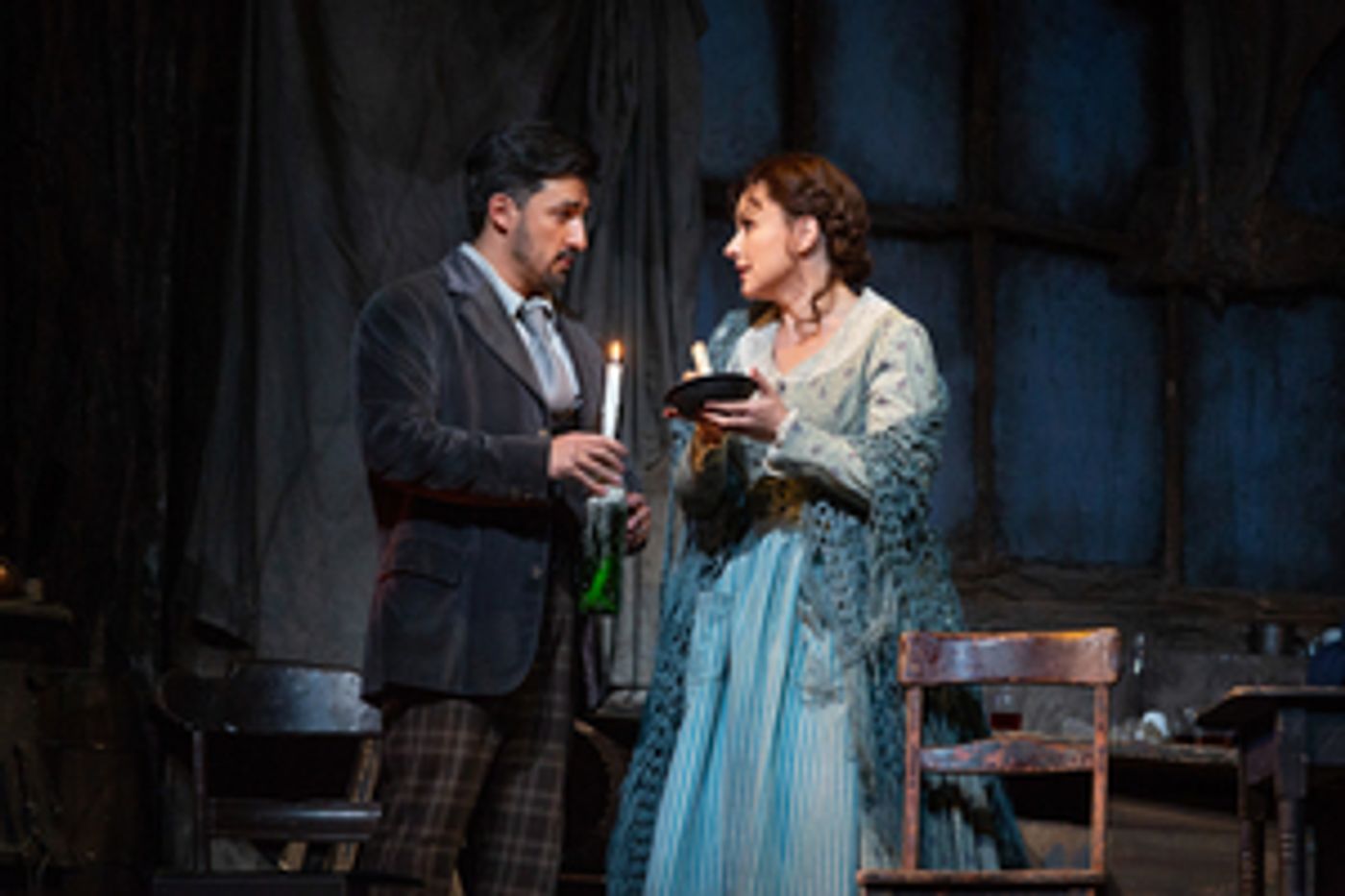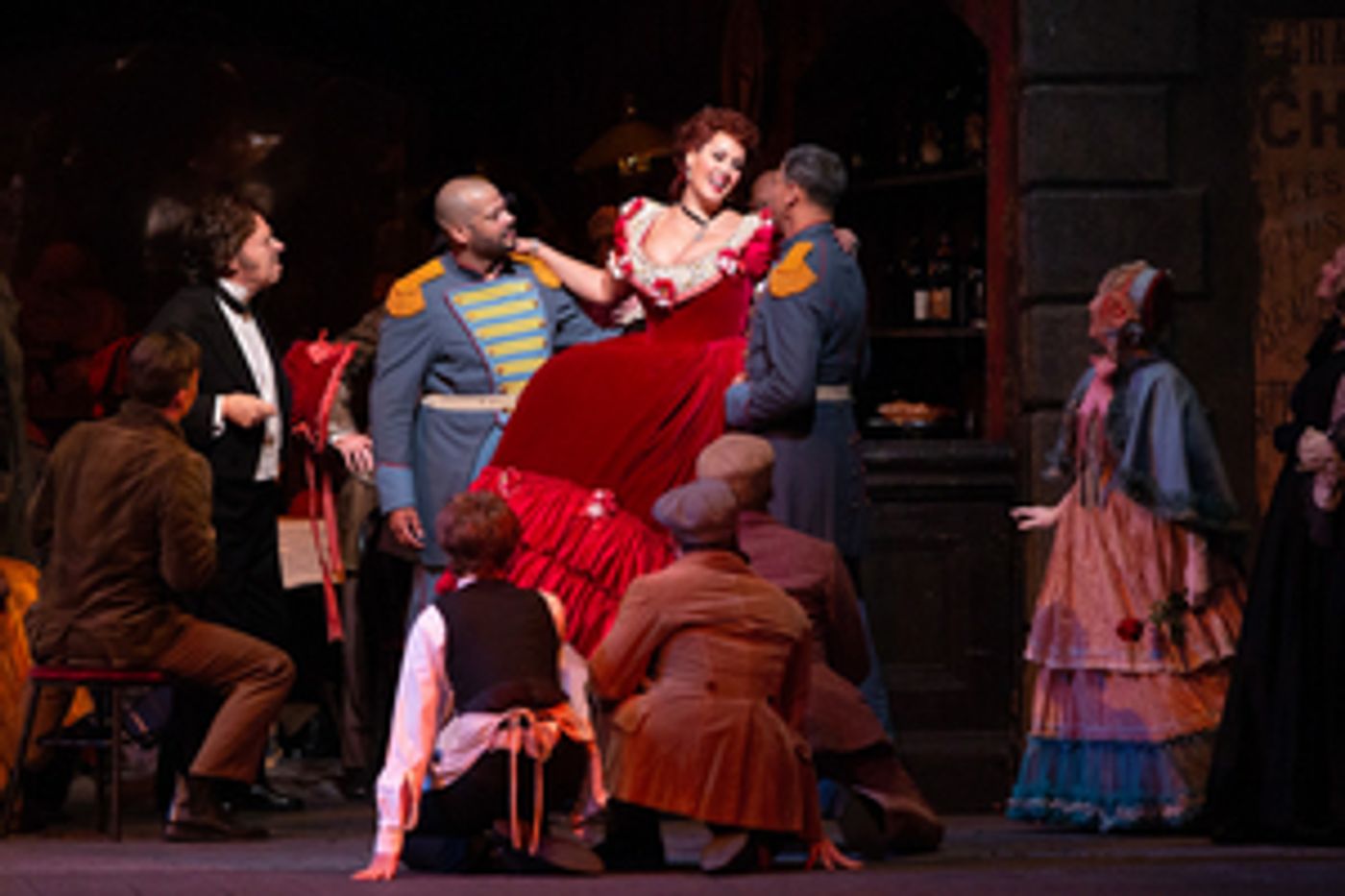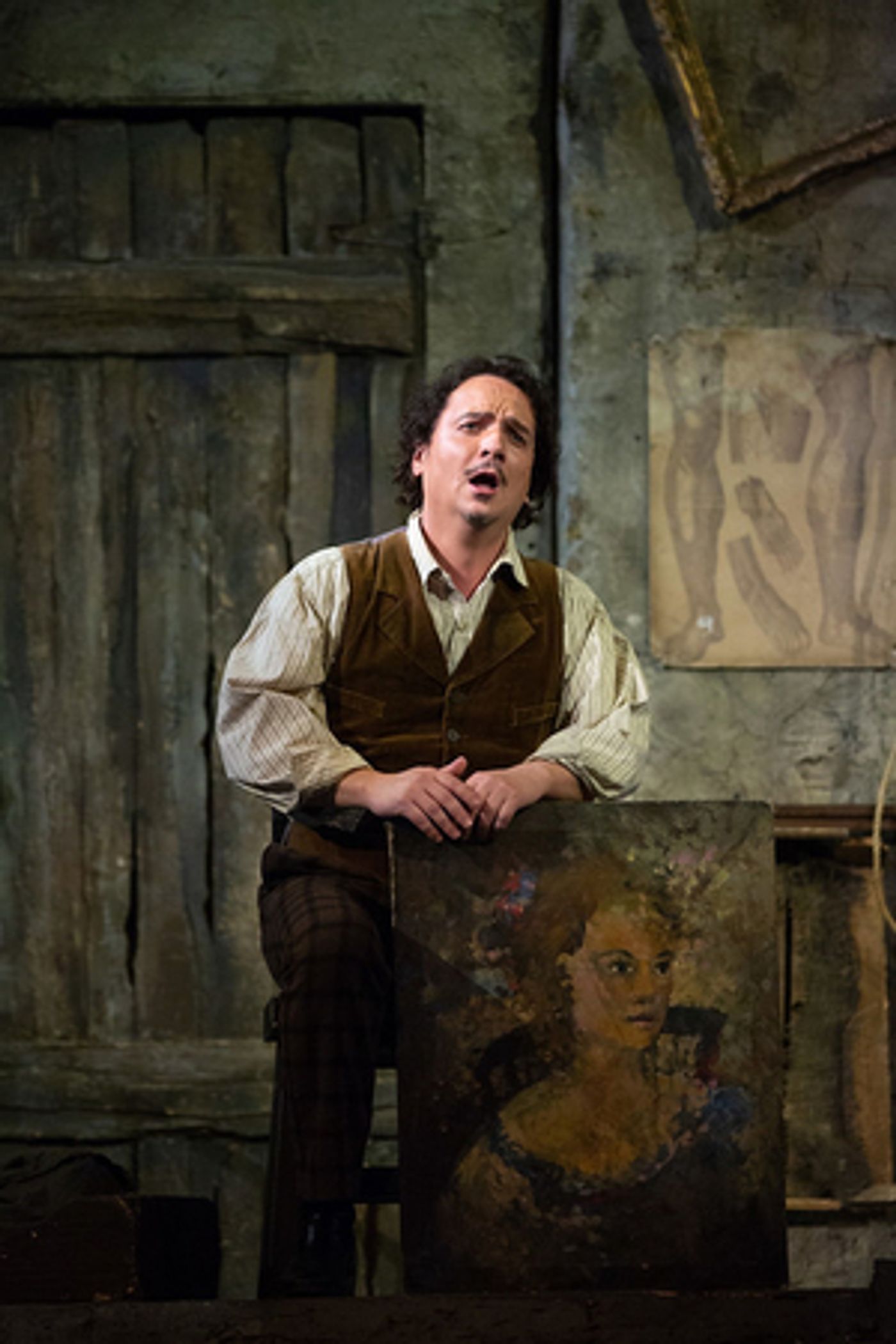Review: Met's First BOHEME of the Season Had the Audience Where It Wanted It
Meister-Maestro Eun Sun Kim Made Debut, Helping Transport Us to 19th Century Paris

and Mimi. Photo: Marty Sohl/Met Opera
Every time I head to a performance of Puccini's LA BOHEME, I can't help but think of Bette Davis's famous line from "All About Eve": "I detest cheap sentiment." And I roll my eyes, wishing I were going to something less adept at pushing the audience's buttons, thinking of something more challenging I'd like to hear.
But then I actually get there and, more likely than not, I feel genuinely moved, swept away by the mood that the composer and his librettists (Illica and Giacosa) have conceived through what seems like an endless array of gorgeous melodies ("Che gelida manina," "Mi chiamano Mimi," et al.) from the very first act--and action that feels genuine. (And, yes, at the Met, the scenery that the Franco Zeffirelli has created that reinforces all the emotional honesty of the work, of the lives of struggling artists in 19th century Paris along with the grandeur that is the city at its best.)
Sometimes I even cry, as I did, briefly, the other night.

Photo: Marty Sohl/Met Opera
Not that it was so perfect, though there were exquisite things about it, but that it catches a moment in time that can't be duplicated today. (I love RENT, but, sorry, it doesn't compare.)
The Met often uses this production--which on its own is the star of the evening--to try out new singers or to engage ones that they don't want to let go but can't quite fit in to something that the artists might find more demanding. Gone are the days when you'd see BOHEME with a cast of stars--like Stratas-Carreras-Scotto together--because, well, they don't make 'em like that anymore.
Still, the Met came up with a better than decent quartet of players, starting with the lovely performance of soprano Anita Hartig as Mimi, a touch of steel in her luxurious, robust voice. Her Mimi is never in danger of getting lost in the crowd, even when the first-rate Musetta of Federica Lombardi stops the show in its tracks with her sweeping, deliciously performed entrance waltz, "Quando me'n vo," an ode to her own charms. The two women were well matched as foils for one another, jumping into the deep end of the opera's pool of melodies fearlessly and successfully.

Photo: Marty Sohl/Met Opera
The men needed a little more time and, unfortunately, I thought that conductor Kim made her only misstep of the evening by overpowering them at the start of Act I before their voices had a chance to warm up. Tenor Charles Castronovo doesn't have the largest voice around, but it's suave and lyric it can make it do just about anything he wants, once it's ready. He made an appealing Rodolfo.
As his pal, Marcello, baritone Artur Rucinski was ready for his close-up once he had a chance to warm up. He was good here, particularly when showing some fire playing off Lombardi's Musetta. But it was too bad that the men didn't have the right backup for their first impression, even though they made up for it later on. (Another standout Bohemian was baritone Alexander Birch Elliott as Schaunard, who I'd heard debut when he stepped into a leading role in PECHEURS DE PERLES for an indisposed colleague.)
Otherwise, it was nice to hear Kim take the Met orchestra and run with it. This is one of those operas they can do in their sleep and they can go their merry way if the conductor isn't quite up to snuff (they get so little rehearsal time here), when even the audience can see maestros who don't quite know what they're doing but the orchestra is ready to run the show properly. Kim was not one of those and she led a nuanced, smartly worked show.
I recently wrote about whether another Zeffirelli/Puccini opera production (TURANDOT) was ready for the mothballs. No such worry here, even though it has a lot of mileage under its belt. Director Gregory Keller kept things humming along--and the audience was ready to hum along with them...at least, when they weren't sobbing.
There are lots more BOHEMEs through the end of May, with a revolving cast, most conducted by Kim (who's the music director of the San Francisco Opera). For more information, see the Met's website.
Reader Reviews
Videos

